Episode 29: Taking a Leap

This week, we look at how the Regional Greenhouse Gas Initiative — the Northeast’s plan to cut carbon emissions — has been working, and what the shifting political environment might mean. We dig into a new study about plans to expand natural gas capacity in New England. On a farm in Vermont, we find out what’s really worrying the young people working the land. We also track predators, fly through the air, and dash through the snow pulled by a horse, minus the sleigh.
Sliding Otters and Flying Skiers
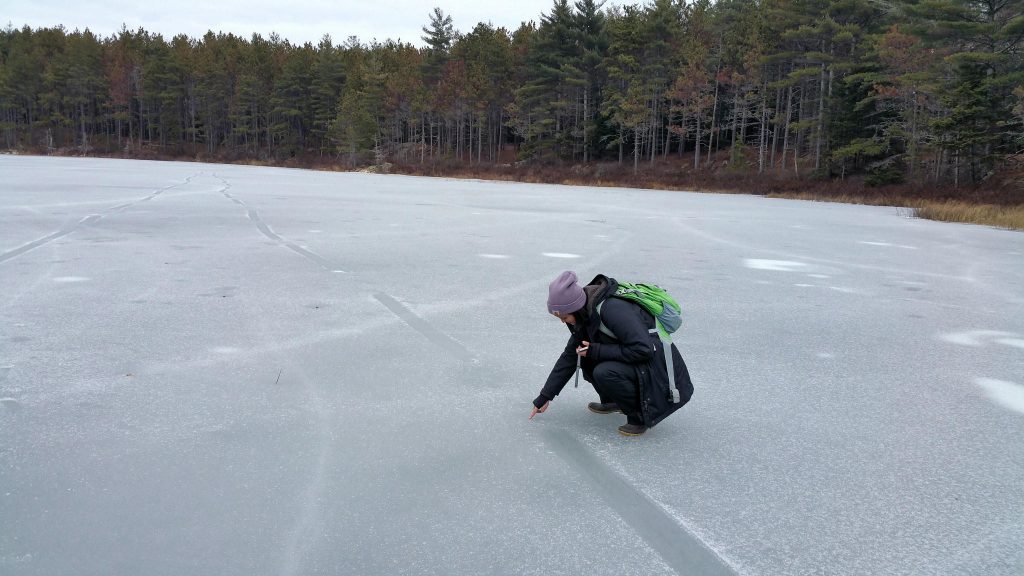
Student Xochitl Ortiz Ross observes a mark on the ice, where an otter has traveled across by sliding on its belly. Photo by Jennifer Mitchell for Maine Public Radio
This month, students from College of the Atlantic in Maine are trekking across ice covered lakes and bushwhacking over frozen marshes on behalf of Acadia National Park. As Maine Public Radio’s Jennifer Mitchell reports, they’re checking the pulse of the park, by tracking it’s most fearsome predator: the river otter.
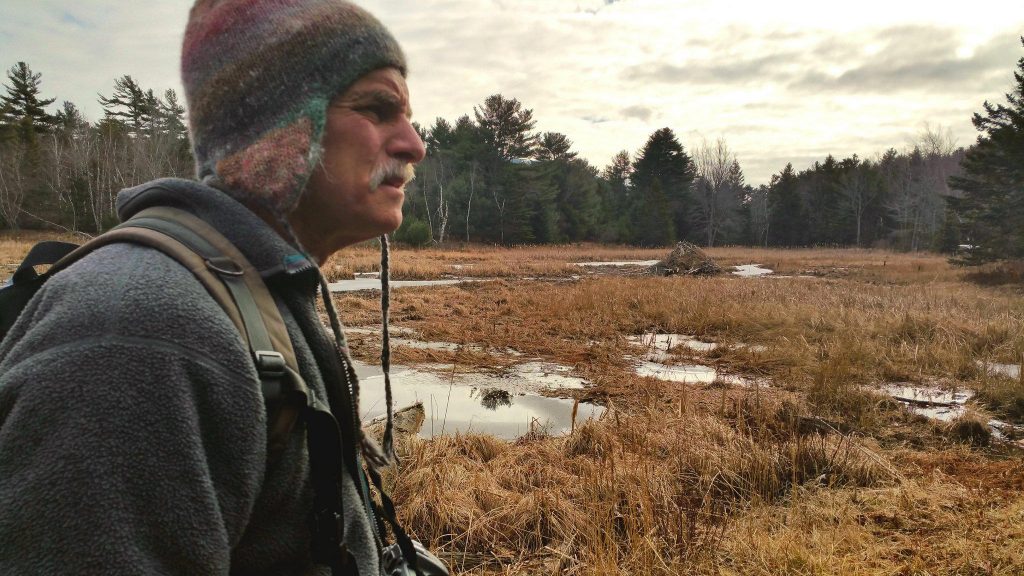
Stephen Ressel, biology professor at College of the Atlantic, leads the research project. Photo by Jennifer Mitchell for Maine Public Radio
The state of Connecticut is not known for big mountains. But if you travel to the far northwest corner, the Berkshires rise to nearly 2400 feet in the tiny town of Salisbury. It’s there that you find a little piece of Nordic sporting history.
For 91 years, Salisbury has been hosting “Jumpfest,” a celebration of ski jumping. During the main event, skiers in brightly colored suits fly off a snow-covered ramp, on top of a 220-foot hill.
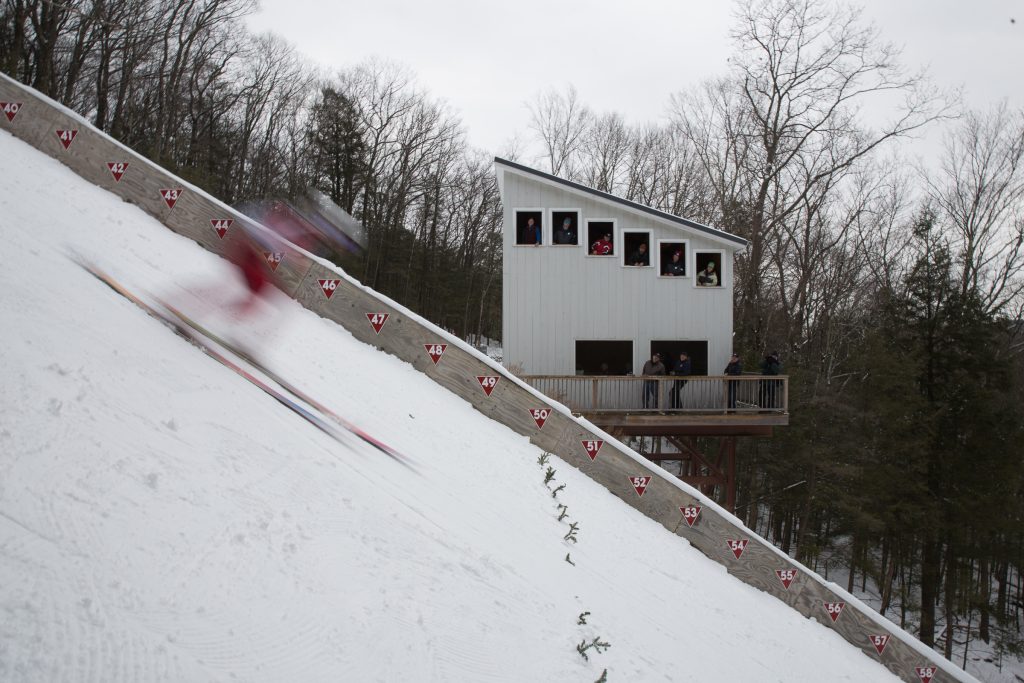
Judges in the tower watch as a jumper passes by. The competitors are judged on their distance and style. Photo by Ryan Caron King for NEXT
Spectators ring cowbells and drink hot toddies, but this isn’t just for fun. The competition is a qualifier for the junior nationals, and most of the jumpers on the big hill are between 12 and 16. NEXT producer Andrea Muraskin and photographer Ryan Caron King pay a visit. Scroll to the top of this page for a slideshow of Ryan’s photos from the event.
Now, from ski jumping, to skijoring.
Never heard of it? Skijorers are pulled across the snow by a horse, a dog or a snowmobile. Skijoring had its moment of glory back in 1928, as a demonstration sport at the Winter Olympics.
But enthusiasts are trying to bring it back, as New Hampshire Public Radio’s Emily Corwin reports.
Affordable Care
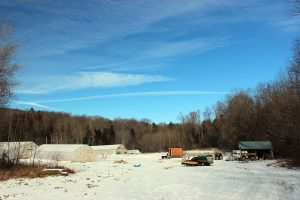
Taylor Hutchinson and Jake Mendell started Footprint Farm in Starksboro about three years ago. They sell vegetables, eggs, and meat through their CSA. Photo by Kathleen Masterson for VPR
Making a living as a farmer is full of challenges. It’s often grueling work that relies on unpredictable factors such as weather and global market prices. But one aspect that’s often ignored is the cost of health care.
Vermont Public Radio reporter Kathleen Masterson spoke with University of Vermont researcher Soshanah Inwood, who is studying how health care policy affects farmers trying to grow their businesses. And she caught up with some young farmers who say they’d struggle to run their farm without Affordable Care Act subsidies.
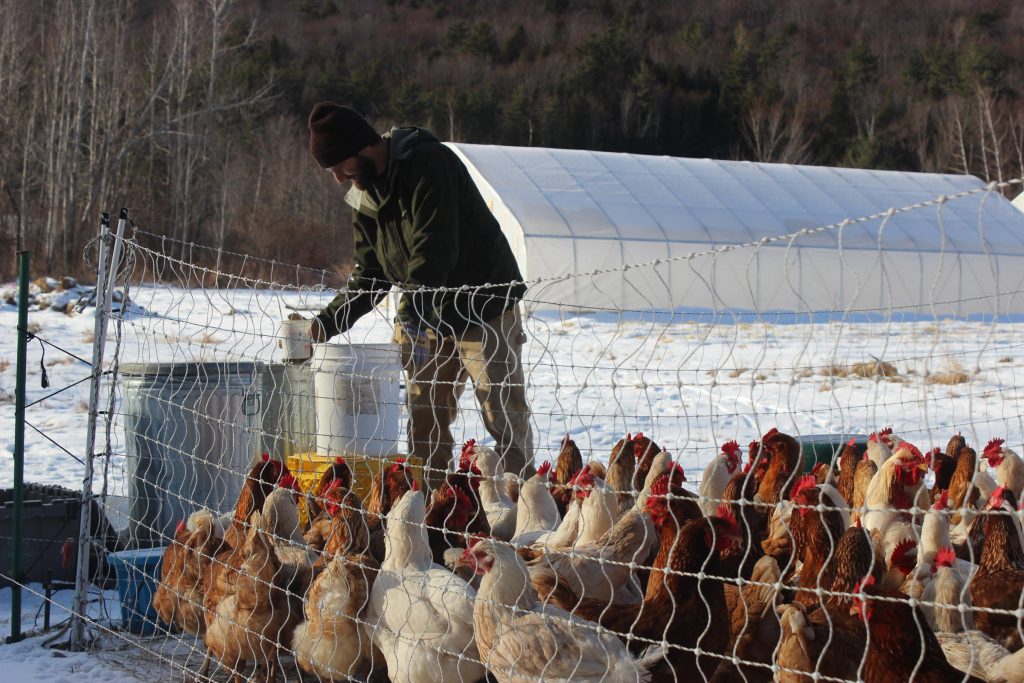
Jake Mendell of Footprint Farm says he chose farming because he’s passionate about it, but it’s challenging to make a viable living with current food prices. Photo by Kathleen Masterson for VPR
If the Affordable Care Act is repealed without a replacement, hospitals in Rhode Island and around New England could take a hit. Rhode Island Public Radio’s Kristin Gourlay tells us that includes money to help cover care for low income patients. And it threatens a new way of paying for patient care.
Power Up
Environmentalists are eyeing the new Trump administration with skepticism. The president’s choice to be head of the EPA, Oklahoma Attorney General Scott Pruitt, has been battling that agency for years, suing the EPA 14 times, and working against efforts to cut carbon emissions.
Republican Maine Senator Susan Collins said she wouldn’t support the nomination: “His actions leave me with considerable doubts about whether his vision for the EPA is consistent with the agency’s critical mission to protect human health and the environment,” Collins told Maine Public Radio.
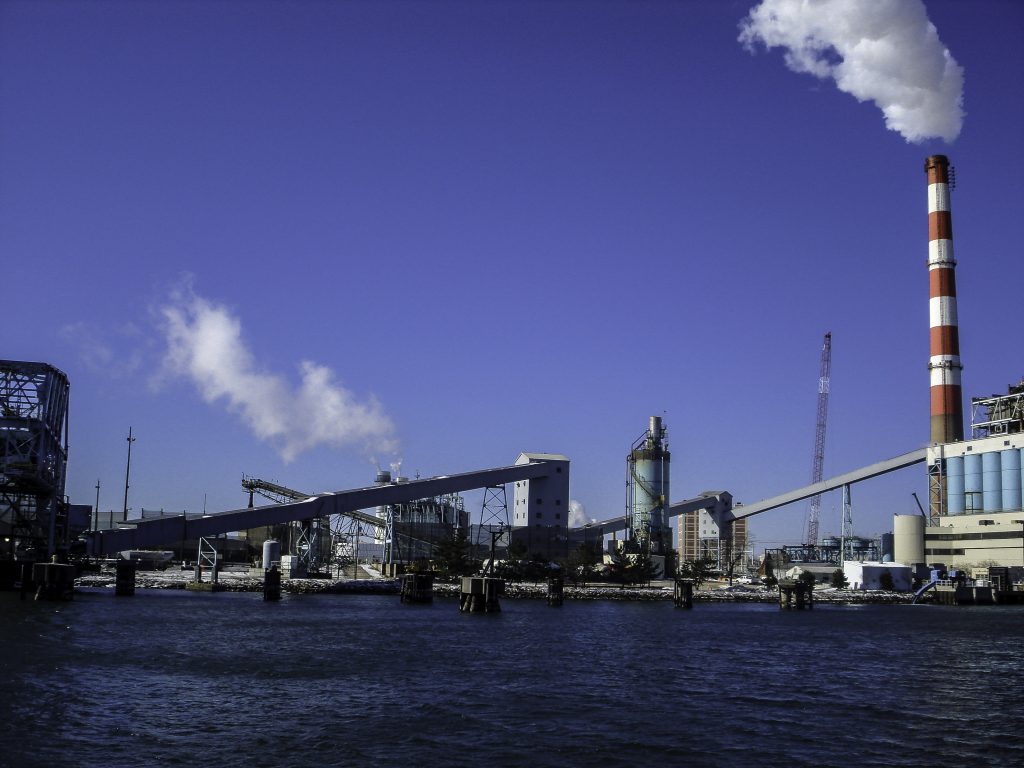
The Regional Greenhouse Gas Initiative limits emissions from power plants, like this one in Bridgeport, Conn. Some advocates want to expand the program to cover emissions from cars. Photo by Iracaz for Good Free Photos.
New England states are some of those taking the lead on cutting greenhouse gasses. Since 2009, all six New England states, plus Delaware, New York, and Maryland, have worked together in the Regional Greenhouse Gas Initiative. RGGI is a cap-and-trade system for energy producers in the nine states.
Conceived during the Bush administration, RGGI’s emissions targets are above what the EPA requires. The collaboration has been working, says our guest, environmental reporter Benjamin Storrow. But the new administration may create difficulties for expanding the region’s pollution restrictions further. Storrow has reported on this question for Climatewire from E&E News.
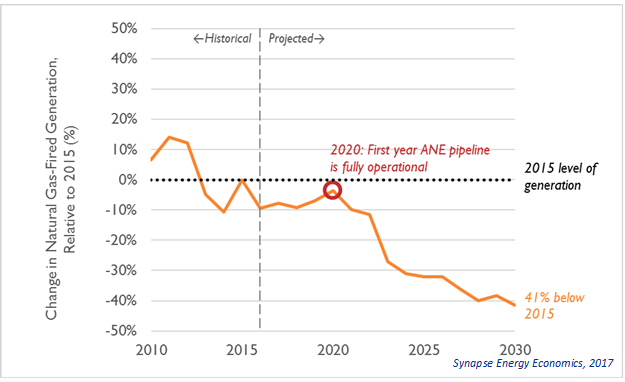
A graph from the Synapse Energy Economics report “New England’s Shrinking Need for Natural Gas.” Courtesy of Synapse Energy Economics.
One key to New England’s success in cutting greenhouse gas emissions is the move away from coal plants to renewables, and cleaner-burning fuels. That’s meant a shift to natural gas as the region’s dominant energy source.
Electric utilities have been making the case for years that even as we rely more on wind and solar power, there’s a growing need for natural gas infrastructure . But a new report from Synapse Energy Economics takes the opposing view. It says the need for gas is actually shrinking — because of laws mandating more renewables — and because of the high cost of building pipelines like the proposed Access Northeast Plan. Our guest Pat Knight is a senior associate with Synapse Energy Economics, and one of the authors of the study.
About NEXT
NEXT is produced at WNPR.
Host: John Dankosky
Producer: Andrea Muraskin
Executive Producer: Catie Talarski
Digital Content Manager/Editor: Heather Brandon
Contributors to this episode: Kathleen Masterson, Kristin Gourlay, Jennifer Mitchell, Emily Corwin, Ryan Caron King
Music: Todd Merrell, “New England” by Goodnight Blue Moon
We appreciate your feedback! Send praise, critique, suggestions, questions, story leads, and pictures of your favorite New England winter sports to next@wnpr.org.



